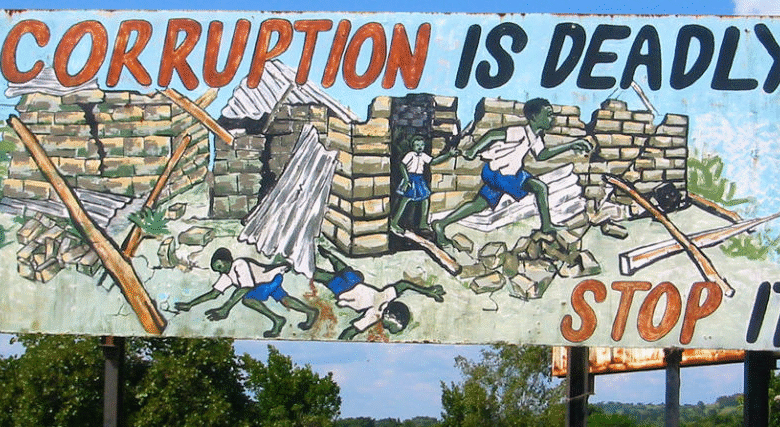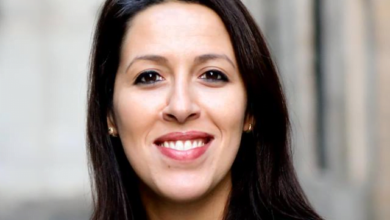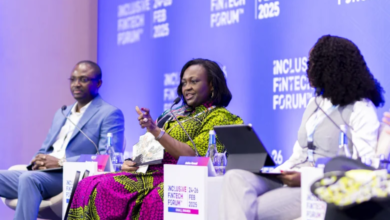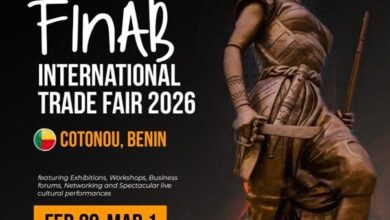Corruption : a barrier to development that Africa must urgently dismantle
As the valuation of Africa’s capital is increasingly seen as a lever for growth on the continent, the fight against corruption has become an essential condition. This economic and social scourge deprives Africa of billions of dollars every year, weakens its institutions, and stifles its potential.

By Bilkyss Mentari, in Abidjan
It was one of the major themes of the recent Annual Meetings of the African Development Bank (AfDB), held in Abidjan from May 26 to 30. The fight against corruption was at the heart of its priorities. This direction reflects a clear desire to eradicate a scourge that, according to the UNODC, represents “the single greatest obstacle to economic and social development around the world.”
Corruption does not invest in the future, it kills it

The numbers speak for themselves: globally, around $1 trillion is paid in bribes each year, and $2.6 trillion is stolen annually through corruption — over 5% of global GDP.
“Corruption does not invest in the future, it kills it,” emphasized Akinwumi Adesina, outgoing President of the AfDB.
In Africa, the United Nations Economic Commission for Africa (UNECA) estimates that more than $89 billion leaves the continent each year in illicit financial flows — more than it receives in official development assistance. Corruption, in all its forms — embezzlement, rigged procurement, favoritism — is responsible for the loss of 20 to 25% of annual public budgets in several countries, depriving states of precious resources to finance their priorities.
A strategic and coordinated response
To address this challenge, the AfDB is deploying a multidimensional approach. It draws on its 2024–2033 Ten-Year Strategy, which places economic governance at its core, and on an Action Plan 2025–2026 to combat money laundering and illicit financial flows. An Anti-Corruption Plan 2025–2030 is also being developed.
These tools aim to strengthen regulatory frameworks, improve transparency around beneficial ownership, support oversight authorities, and mobilize civil society. Transparency in public procurement, citizen oversight, and international cooperation are identified as major priorities.
Concrete reforms and rigorous assessment
In its financing activities, the AfDB integrates governance and corruption risk assessments, notably through tools like CPIA (Country Policy and Institutional Assessment) and CFRA (Country Fiduciary Risk Assessment). These mechanisms help identify institutional gaps and recommend appropriate reforms.
In Côte d’Ivoire, the institution supported the adoption of a new national anti-corruption strategy and the modernization of the legal framework.
In South Sudan, training programs have strengthened the skills of the national anti-corruption agency.
In Egypt, the AfDB contributed to enhancing the investigative capacity of the Administrative Control Authority.
At the continental level, countries such as Rwanda, Botswana, and Cape Verde are regularly cited as examples of good governance, with robust oversight mechanisms, strong political will, and tangible results on the ground.
Tracing illicit assets, reinforcing cooperation
The Bank’s commitment also extends beyond national borders, through its support of the Common African Position on Asset Recovery (CAPAR). It plays an active role in the African Union Network of Asset Recovery Practitioners, which brings together experts from across the continent to foster judicial cooperation.
Moreover, thanks to the ABENOT initiative, transparency regarding the real beneficiaries of companies has improved, which hinders the creation of shell companies used to conceal illegal funds.
Investigations, sanctions, and citizen mobilization
The Integrity and Anti-Corruption Office (PIAC) of the AfDB conducts investigations into high-risk projects, imposes sanctions, and performs integrity checks. In 2020, 155 entities were debarred for fraudulent practices, under the multilateral agreement signed with other international financial institutions.
Fighting corruption is about restoring trust and giving back hope
This fight, however, is not limited to top-down approaches. Several African NGOs — such as Transparency International Africa, BudgIT Nigeria, and AfroLeadership — advocate for broader access to budget information, citizen participation, and whistleblowing on abuses.
“Fighting corruption is about restoring trust and giving back hope,” noted Hassatou Diop N’Sele, Vice President for Finance at the AfDB.
When Europe tops the corruption rankings…
Ironically, as Africa strengthens its anti-corruption mechanisms, Europe rose to the top of the global corruption rankings in the first quarter of 2025, according to a groundbreaking report by the World Anti-Corruption and Crime Security Organization (OMSAC). This ranking, based on independent investigations and whistleblower testimony, stands in stark contrast to conventional indices often accused of bias.
“It is time to end the systematic stigmatization of developing countries, too often framed as the ideal culprits, while major powers remain shielded from scrutiny”
From the Huawei scandal in the European Parliament, to the “Petit Bar” clan affair in Corsica, to probes into General Electric in France and new Qatargate indictments, the revelations are mounting and damaging the Old Continent’s image of integrity.
It is time to end the systematic stigmatization of developing countries, too often framed as the ideal culprits, while major powers remain shielded from scrutiny
said an OMSAC analyst
This reversal compels a reevaluation of dominant narratives and demands a fair and global fight against corruption, both in the Global North and South. For if Africa is to move forward, the rest of the world must also clean up its practices and cooperate sincerely.
A must for unlocking the continent’s potential
According to the World Bank, “Corruption reduces the efficiency of public spending, discourages investors, and exacerbates social inequalities.”
In Africa, this translates to hospitals without equipment, schools without teachers, and roads never built despite approved budgets.
As the continent needs to mobilize at least $200 billion per year to meet the Sustainable Development Goals (SDGs), according to the World Bank, financial leakages represent an unsustainable hemorrhage.
Corruption reduces the efficiency of public spending, discourages investors, and exacerbates social inequalities
By placing governance and transparency at the center of its interventions, the AfDB aims to play a catalytic role. But success will also depend on political will, judicial independence, citizen education, and international cooperation.
Africa lacks neither resources nor talent — it must now ensure they are no longer diverted.






